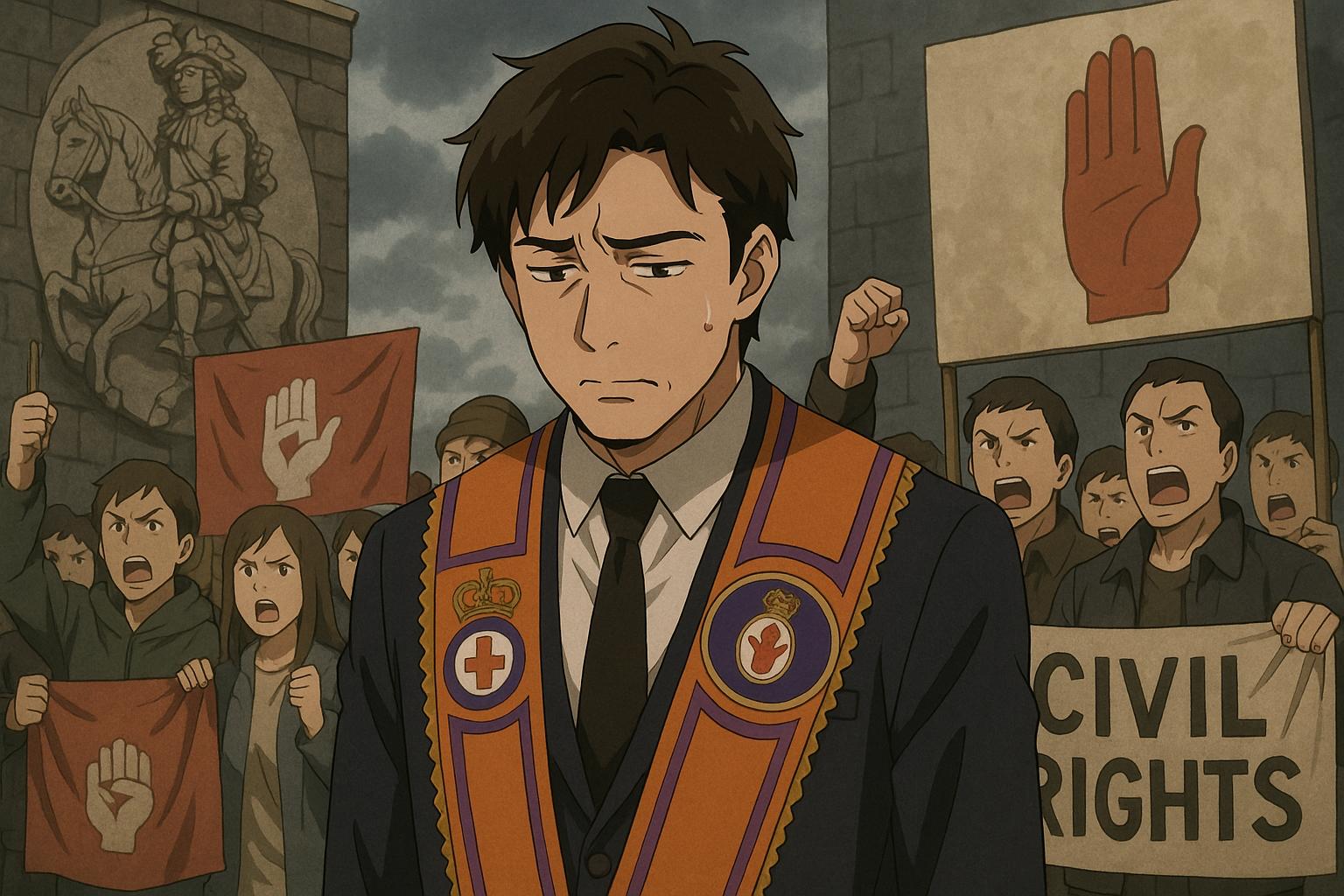In the lead-up to the Hamilton, Larkhall and Stonehouse by-election, Tory candidate Richard Nelson finds himself embroiled in controversy over his longstanding affiliations with groups linked to the Orange Order and the Apprentice Boys of Derry. Responding to probing questions about the appropriateness of his membership in these organisations for an elected official, Nelson claimed, “We are law-abiding organisations. We pledge allegiance to His Majesty the King… We are not divisive at all, and people have their right to their own religion.” This assertion represents a troubling narrative, as many view the Orange Order as a relic of division rather than a champion of community unity.
Nelson, a councillor for Larkhall on South Lanarkshire Council, actively participates in the Netherton Covenanters Loyal Orange Lodge and serves as secretary of the Scottish Amalgamated Committee of the Apprentice Boys of Derry. While he maintains that his affiliations do not hinder his capacity to represent a diverse electorate, critics vehemently counter by highlighting the deep-rooted sectarian tensions that surround the Orange Order, particularly during their parades through predominantly Catholic neighbourhoods that often amplify societal divides. The Scottish Conservatives, attempting to distance themselves from these concerns, insist that such memberships reflect personal choices. Yet, with a Labour government now at the helm, the public is less inclined to overlook these affiliations, questioning their commitment to genuine community representation.
Adding to the scrutiny, Nelson has faced backlash over his parallel career as a comedy hypnotist, where videos depict him using colourful language directed at audience members. While some may view this as a glimpse into his character, critics are quick to assert that this approach may alienate constituents who are looking for a candidate anchored in seriousness and accountability, not showmanship.
The political landscape surrounding candidates like Nelson is increasingly burdened by the liabilities of their historical affiliations. The Orange Order, with its contentious legacy in Scotland, continues to serve as a divisive force, not just for Nelson, but for other Conservative candidates too. Calum McClean, a former 'master' of the Orange Order, recently faced similar backlash when selected as a candidate for the Irvine South constituency, spotlighting the growing discord within the Scottish Conservative Party regarding how such affiliations resonate in today’s multicultural society. Despite their claims that community engagement can outweigh divisive legacies, the electorate under a new Labour regime is less forgiving of these contentious links.
Furthermore, the reach of the Apprentice Boys has expanded significantly, with clubs proliferating in Scotland and revealing entrenched connections between Scottish and Irish Orangeism. This expansion has catalyzed protests, as seen in Inverness, where public outcry against an Apprentice Boys march underscored the persistent tensions these events incite. Local authorities, despite sanctioning these activities, find themselves wrestling with the weight of historical grievances.
As Richard Nelson braces for the upcoming by-election, his affiliations act as both a shield and a sword. While he argues that his dedication to charity and community service transcends public perceptions of divisiveness, critical questions linger: Can he truly bridge the historical divides inherent in his connections? Will voters perceive his past as a testament to genuine service, or as a significant barrier to inclusivity in a time when an increasingly discerning electorate demands unity over division?
Source: Noah Wire Services
